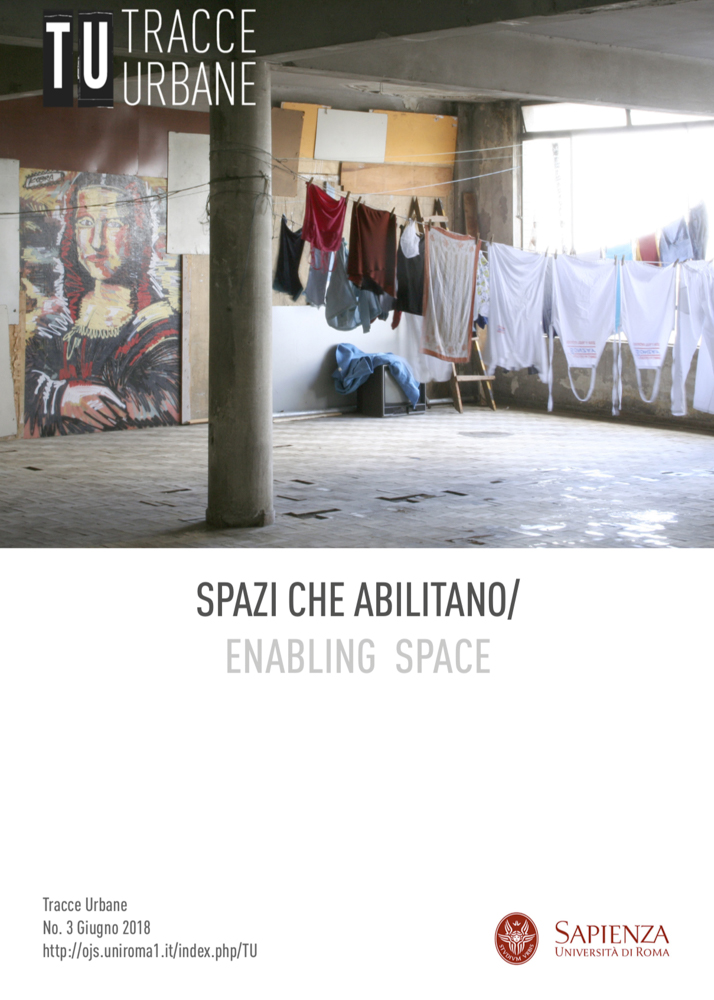Counteracting Ingrained Practices of Community Development in the US South The Case of Klondike/Smokey City in Memphis TN, USA
DOI:
https://doi.org/10.13133/2532-6562_2.3.14294Parole chiave:
Community, Community Development, Devolution, Self-Organization, Action ResearchAbstract
In the US, the field of community development has recently become a contested terrain where non-governmental entities intertwine their initiatives with the ones proposed and implemented by public authorities. This paper explores the assumptions and some of the problematic and unresolved issues tied to the rhetoric of community development exploring the case of the historic African American neighborhood of Klondike Smokey City (KSC). In particular, the paper shares some of the lessons learned during an action-oriented research process carried out by a newly born partnership between the KSC Community Development Corporation (CDC) and the City and Regional Planning (CRP) Department at the University of Memphis. The paper reflects on how approaches to planning research inspired by action-research might be conducive in revealing some of the most challenging issues faced by self-organization practices and how these might be addressed through collaborative planning processes.
Riferimenti bibliografici
Aalbers, M. B. (2014). Do maps make geography? Part 1: Redlining, planned shrinkage, and the places of decline. ACME: An International Journal for Critical Geographies, 13(4), 525-556.
Bratt, R. G. (1989). Rebuilding a low-income housing policy. Temple University Press.
Connerly, C. E. (2002). From racial zoning to community empowerment: The interstate highway system and the African American community in Birmingham, Alabama. Journal of Planning Education and Research, 22(2), 99-114.
Clavel, P., Pitt, J., & Yin, J. (1997). The community option in urban policy. Urban Affairs Review, 32(4), 435-458.
Clavel, P., & Wiewel, W. (1991). Harold Washington and the neighborhoods: Progressive city government in Chicago, 1983-1987. Rutgers Univ. Pr.
Forester, J., & Krumholz, N. (1990). Making Equity Planning Work: Leadership in the Public Sector.
Herbert, S. (2005). The trapdoor of community. Annals of the Association of American Geographers, 95(4), 850-865.
Marris, P., & Rein, M. (1967). Dilemmas of social reform: poverty and community action in the United States (Vol. 15). Transaction Publishers.
Molotch, H. (1976). The city as a growth machine: Toward a political economy of place. American journal of sociology, 82(2), 309-332.
Piven, F. F., & Cloward, R. A. (1979). Poor people's movements: Why they succeed, how they fail (Vol. 697). Vintage.
Kretzmann, J., & McKnight, J. P. (1996). Assets-based community development. National Civic Review, 85(4), 23-29.
Reardon, K. M. (1990). Local economic development in Chicago 1983-1987: the reform efforts of Mayor Harold Washington. Unpublished PhD Dissertation, Cornell Archives.
Shearer, D. (1989). In search of equal partnerships: prospects for progressive urban policy in the 1990s. Unequal partnerships: The political economy of urban redevelopment in postwar America, 289-308.
Starr, R. 1976. Making New York smaller. The New York Times, November 14: 32-
& 99-106.
Swyngedouw, E. (2010). Impossible sustainability and the post-political condition. In Making strategies in spatial planning (pp. 185-205). Springer Netherlands.
Swyngedouw, E. (2014). Where is the political? Insurgent mobilisations and the incipient “return of the political”. Space and Polity, 18(2), 122-136.
Williams, O. R., & Pierce, J. (2017). Inserting scales of urban politics: the possibilities of meso-urban governance shims. Urban Geography, 38(6), 795-812.
##submission.downloads##
Pubblicato
Come citare
Fascicolo
Sezione
Licenza
NOTA DI COPYRIGHT
Proposta di licenza Creative Commons
1. Proposta per riviste Open Access
Gli autori che pubblicano su questa rivista accettano le seguenti condizioni:
Gli autori mantengono i diritti sulla loro opera e cedono alla rivista il diritto di prima pubblicazione dell'opera, contemporaneamente licenziata sotto una Licenza Creative Commons - Attribuzione che permette ad altri di condividere l'opera indicando la paternità intellettuale e la prima pubblicazione su questa rivista.
Gli autori possono aderire ad altri accordi di licenza non esclusiva per la distribuzione della versione dell'opera pubblicata (es. depositarla in un archivio istituzionale o pubblicarla in una monografia), a patto di indicare che la prima pubblicazione è avvenuta su questa rivista.
Gli autori possono diffondere la loro opera online (es. in repository istituzionali o nel loro sito web) prima e durante il processo di submission, poiché può portare a scambi produttivi e aumentare le citazioni dell'opera pubblicata (Vedi The Effect of Open Access).


